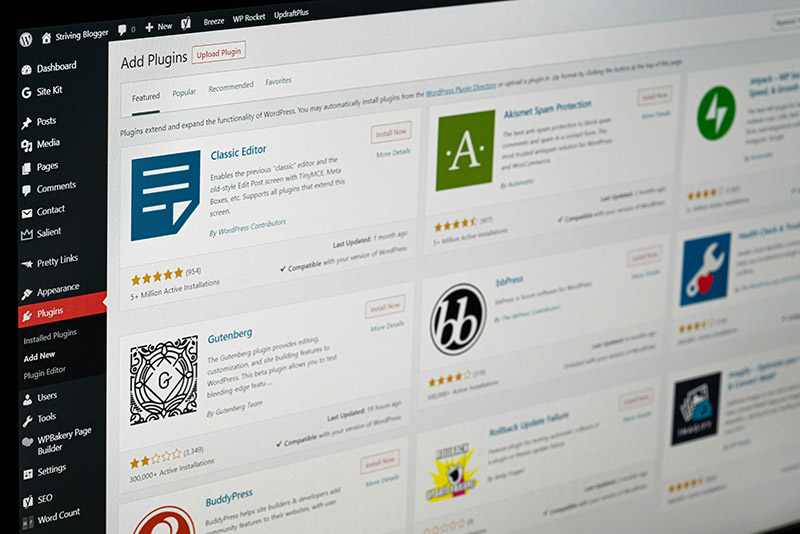Have you ever wondered what goes on behind the scenes when a search engine like Google looks at your website? It’s not just a case of writing a few words and hoping for the best. To rank well and attract visitors, your website needs to be appealing to both your human readers and the search engine ‘bots’ that crawl the internet. This is where on-page SEO comes in.
Here at Suki Marketing, we believe in making things easy to understand. We’re going to break down exactly what is on-page SEO, what a search engine is looking for, and give you a simple guide on how to get it right.
So, What Exactly is On-Page SEO?
On-page SEO refers to all the things you can do on your website to help it rank higher and get more relevant traffic in search engines. Unlike off-page SEO, which deals with external signals like backlinks, on-page SEO is completely within your control. It’s all about optimising your website’s content and structure to signal to search engines that your page is a high-quality, relevant and trustworthy source of information.
Think of it as putting your best foot forward. You’re tidying up your website, making sure everything is clearly labelled and easy to find, which helps both search engines and your visitors have a great experience.
Your On-Page SEO Checklist: What to Look For
To make things simple, we’ve put together a practical on-page SEO checklist that covers the most important elements of a well-optimised page. We use this same kind of SEO on-page check when we start working with our clients, and it’s a great way to make sure you’re covering all the bases.
1. Title Tags
The title tag is the clickable headline that appears in search results. It’s one of the first things a search engine sees and it tells them what your page is all about.
- Tip: Make sure every page has a unique title tag that includes your main keyword. Keep it concise, ideally under 60 characters, to prevent it from being cut off in search results.
2. Meta Descriptions
The meta description is the short paragraph of text that appears under the title in search results. It’s your chance to tell a user why they should click on your link. While it doesn’t directly impact rankings, it is crucial for click-through rates. A compelling meta description can encourage more people to visit your site.
- Tip: Write a concise, engaging summary of the page’s content, and include your primary keyword naturally. Keep it under 155 characters.
3. High-Quality Content
This is the heart of on-page SEO. The content on your page needs to be useful, relevant and comprehensive. Search engines want to provide the best possible answer to a user’s query, so your content should be that answer. This includes text, images, videos and any other media on the page.
- Tip: Write for your audience first, and for search engines second. Aim for depth and detail, and make sure your main keywords are included naturally, but don’t overstuff them.
4. Headings (H1, H2, H3, etc.)
Headings help to structure your content, making it easier for both readers and search engines to scan and understand. The H1 tag is your main heading, and it should contain your primary keyword. H2, H3 and subsequent headings should be used to break up the rest of the text into logical sections.
- Tip: Use headings to create a clear hierarchy. Think of them as a table of contents for your page.
5. Internal Linking
Internal links are hyperlinks that point from one page on your website to another. They help search engines discover and understand the relationships between your content. They also make it easier for visitors to navigate your site and find other relevant information.
- Tip: Link from new content to older, relevant posts. Use descriptive ‘anchor text’ (the clickable text of the link) instead of generic phrases like “click here.”
6. Image Optimisation
Images are great for engaging visitors, but they can slow down your website if they’re too big. You also need to help search engines understand what your images are about.
- Tip: Use descriptive filenames for your images and fill out the ‘alt text’ (alternative text) field with a brief description of the image. This helps with accessibility and gives search engines more context.
7. URL Structure
A clean, easy-to-read URL is a positive signal to search engines. It should be short, descriptive and include your main keyword.
- Tip: Use hyphens to separate words and avoid long, jumbled URLs. For example,
yourwebsite.com/what-is-on-page-seois much better thanyourwebsite.com/p?345id_f=23.
The Importance of a Good On-Page SEO Check
Regularly performing an SEO on-page check is crucial because search engine algorithms and user expectations are always changing. What worked a few years ago might not be as effective today. A thorough check helps you identify any issues that might be holding your website back, from slow page loading speeds to broken links or duplicate content.
By going through a list like this, you can ensure your website is performing at its best and is always in a good position to rank for the searches that matter most to your business.
Why Use Professional On-Page SEO Services?
While this guide provides a great starting point, the world of SEO can be complex and time-consuming. Many business owners find that they just don’t have the time to conduct a comprehensive SEO on-page check on every page of their site, let alone stay on top of the constant changes.
This is where professional on-page SEO services become invaluable. As a fully managed SEO agency, Suki Marketing takes care of all of this for you. We don’t just provide you with a list of tasks; we get in there and do the work.
Our services include:
- In-depth keyword research to identify the best terms for your business.
- Optimising all your on-page elements, from title tags and meta descriptions to headings and URLs.
- Writing high-quality, engaging and optimised content for your website.
- Performing regular SEO on-page check audits to keep your site in top condition.
- Making sure your website is technically sound and loads quickly.
Partnering with an agency means you can focus on running your business while we handle the complicated and time-consuming work of making sure your website is a powerful online asset. We pride ourselves on being transparent and approachable, explaining our strategy in plain English every step of the way.
Don’t let your website get lost in the digital crowd. By paying attention to the details of on-page SEO, you’re not only making your site more visible to search engines but also providing a much better experience for your customers.
Need a helping hand? Speak to Suki Marketing today and find out how we can help you climb the ranks.



